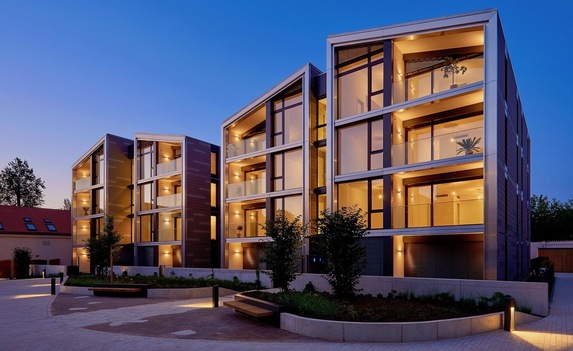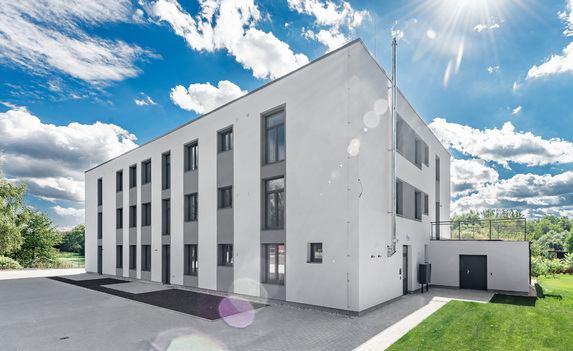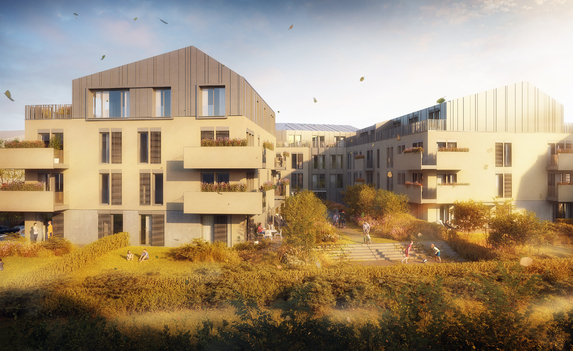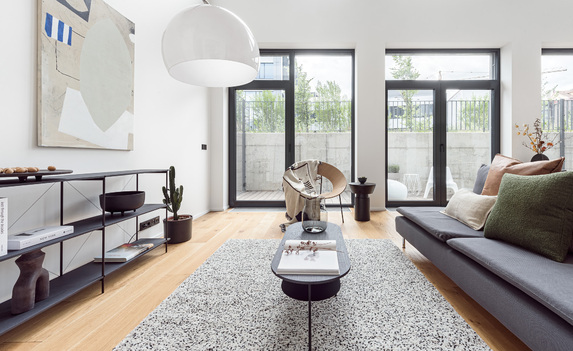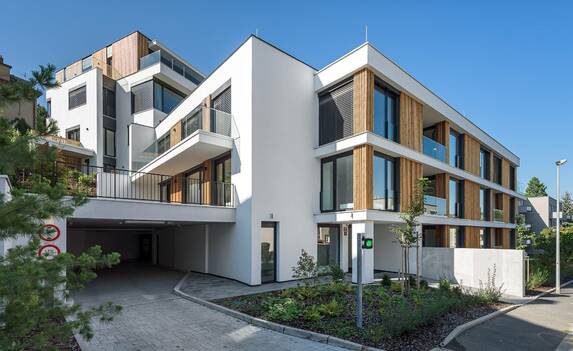The new building law will come into force in two years. It will bring digitization and Supreme Building Authority

After years of preparations, the Czech republic received a new building law. It was approved by parliament on July 14 and signed by the president the following day. It aims to significantly simplify the process of issuing building permits and shorten the length of the approval procedure. Although it will not take effect until July 1, 2023, the first changes can be expected at the beginning of next year.
The main change, which is intended to simplify the procedure for processing building permits, will be the transfer of building authorities from local governments to state administration, and the integration of a number of approval bodies under one roof. On January 1, 2022, the Supreme Building Authority will be established, which will gradually take over thousands of employees of the existing system of building authorities. It will also include hygiene, transport, environmental and other bodies that have so far operated separately.
It will no longer be necessary to look for dozens of separate confirmations. The new office will operate in the spirit of the motto "one building, one stamp". The currently separated process of building permit and zoning decision will also be merged. The Specialized and Appellate Building Authority and the first-instance regional building authorities will also operate together with the new office. The Supreme Office will no longer be able to cancel and return decisions of first instance authorities, but will always have to make a final decision.
Improving the protection of the public interest
From the separation of building authorities to local governments, deputies expect improvement of the protection of public interests and better protection of officials from the "arbitrariness" of local government representatives. Until now, they could not only comment, but according to many, directly influence the approval. Coordination of experts from different fields should also be improved, so that the protection of one public interest does not push other interests into the background.
Maximum time limits for granting permits will also be set. Officials will be required to comment within 30 days, in special cases, such as for particularly large buildings, the deadline will be a further 30 days longer. If the Office does not respond within that period, an assent shall be issued automatically.
However, one of the biggest expected benefits for builders is the full digitization of the approval process. Not only communication with the building authority and the authorities concerned will be digitized, but also access to the files and the approval process, which should lead to greater transparency.
Greater power for the public and an end to the repression of comments
The shortening of deadlines and the unification of the bodies concerned promises to facilitate public comments. The new building law allows the public to comment on the construction plan from the beginning. Experts from formerly independent bodies, now united directly at the building authority, will, in contrast to the current regulation, deal with the given comments directly within the framework of approving the plan for their field. However, the public can still appeal against the building authority's decision, so the comments will be considered twice in such a case.
Related to this is a simpler way of objecting. Until now, the public had to raise a different type of objection in territorial and another in construction proceedings. Exceptions were cases where the builder applied for a joint permit. Thanks to the merger of the two proceedings, the parties concerned will be able to raise objections at one stage without complicated legal considerations.
In addition, fully invited environmental associations will again be involved in the approval process, which have been restricted in the hitherto confusing system due to the abuse of procedural rights instead of factual discussion. The simplification of the entire management process is intended to eliminate the possibility of blocking and it is thus possible to expand the circle of participants in the proceedings.
Clear requirements for construction
Other simplification steps of the new law include unification of the spatial planning process. Documentation at all levels will be acquired in a uniform process. The law also newly contains a definition of the so-called blue-green infrastructure. Its purpose is efficient water management and combination with green elements in order to improve the ecological situation of cities.
Related to this are new requirements for construction and the possibility for municipalities to condition construction with the conclusion of planning contracts, such as the obligation to make investments in public facilities or provide a financial contribution to the municipality. The law also contains requirements for improving the quality of public spaces, passability for pedestrians and cyclists or environmental protection. Exceptions to national regulations will be Prague, Brno and Ostrava, protected areas or public benefit buildings.
- author
- Filip Kubus
- date
- 04. 11. 2021

Contact us +420 731 544 904
World first class services for real estate sales and marketing. We rely on creativity, innovation, courage and optimism. Art of Business. We change the established. We push the boundaries.
CONTACTS








































New properties sent to your email
Subscribe.

